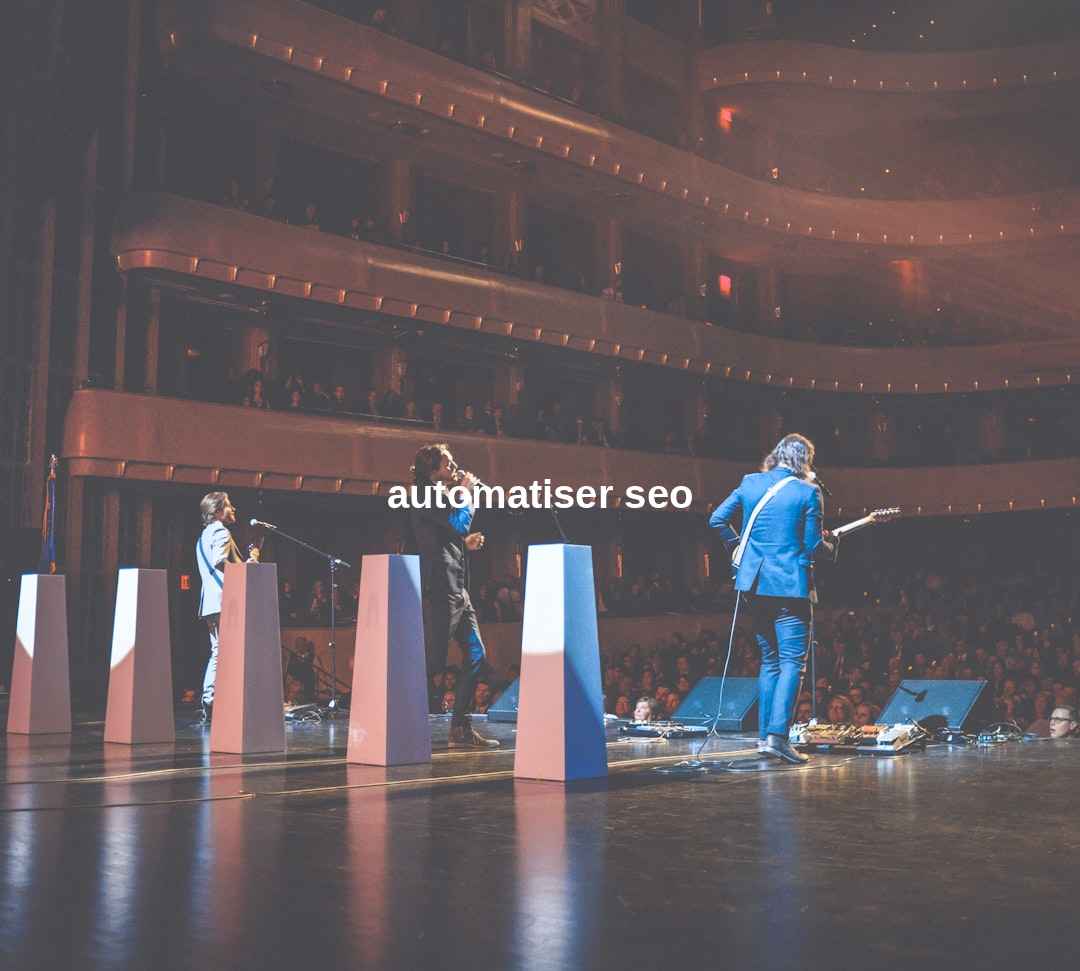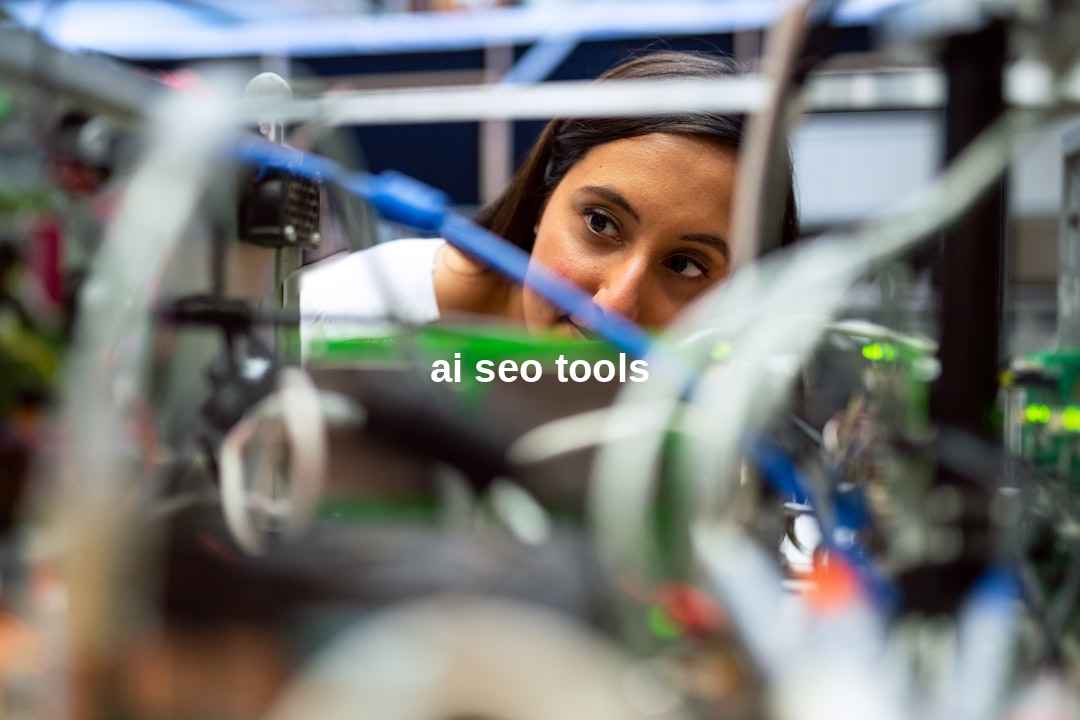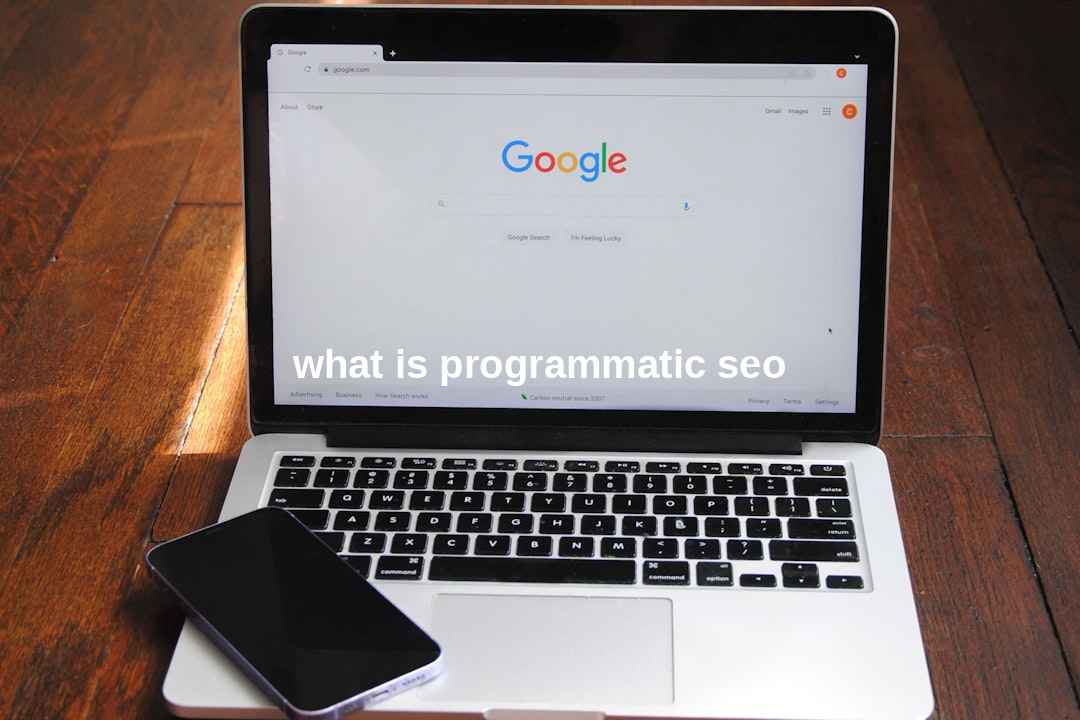Introduction:
In the ever-evolving world of digital marketing, the ability to increase visibility and drive traffic to websites efficiently has never been more critical. As competition intensifies, the need for innovative solutions to stay ahead in search engine rankings is paramount. This is where the concept of automatiser SEO (SEO automation) comes into play. SEO automation refers to the use of software or tools to perform SEO tasks with minimal human intervention, thereby saving time, reducing errors, and optimizing performance.
While the thought of automating SEO processes might seem daunting, a myriad of tools and technologies have made it not only possible but also increasingly necessary. Now, let’s delve into the essential information about SEO automation and how it can be a game-changer for digital marketers and businesses alike.
| Feature | Function | Benefit | Consideration |
|---|---|---|---|
| Keyword Research | Automates the discovery of relevant keywords | Saves time and identifies long-tail opportunities | May require fine-tuning to align with strategy |
| On-Page Optimization | Automates meta tags, headings, and content optimization | Improves page relevance and SERP rankings | Should be supplemented with human creativity |
| Link Building | Automates the process of finding and pursuing backlink opportunities | Expands backlink profile efficiently | Quality of links needs to be monitored closely |
| Analytics and Reporting | Automates data collection and performance reporting | Provides insights for informed decision-making | May require interpretation and analysis |
Exploring the Landscape of Automated SEO Tools
SEO automation tools come in various forms, each serving different aspects of the SEO process. To grasp how these tools fit into a comprehensive SEO strategy, we must explore the main categories and what they offer.
Keyword Research and Analysis Tools
The foundation of any impactful SEO strategy is a well-thought-out keyword plan. Automated keyword research tools have become integral for discovering high-value keywords that align with user queries. They help identify trends, search volume, and competition levels, enabling marketers to prioritize their targets with precision. These tools often suggest long-tail keywords, which are less competitive but highly specific to user intent, offering a viable path to rank for niche searches.
Automating keyword research can massively scale the process, giving businesses an edge in identifying untapped opportunities. However, despite the significant advantages of automation in keyword research, it’s crucial to ensure the data aligns with the unique goals and content strategy of a business. Customizing and refining keyword choices often requires a human touch to ensure they resonate with the intended audience.
The Technical Side of SEO Automation: Technology and Techniques

The technical aspect of SEO automation leverages cutting-edge technology and sophisticated techniques to streamline and enhance SEO activities, greatly influencing scalability and efficiency.
Key Technologies Powering SEO Automation
At the core of SEO automation lies an array of technologies designed to handle various tasks that would be too time-intensive or complex for humans to manage effectively. These include artificial intelligence (AI) and machine learning algorithms that can predict trends, analyze search engine algorithm changes, and provide actionable insights. Additionally, natural language processing (NLP) capabilities enable tools to understand and optimize content for both search engines and human readers.
SEO Automation Techniques
Effective SEO automation techniques cover a broad spectrum of tasks, such as automated site audits that identify and suggest fixes for technical SEO issues. Crawlers and indexers are deployed regularly to simulate search engine crawling, ensuring that websites are being indexed correctly. Additionally, task automation scripts can handle repetitive tasks like URL redirects and monitoring site uptime. These techniques save SEO professionals considerable time, making it possible to focus on strategy and creative tasks that require human expertise.
Balancing Automation and Human Insight in SEO Strategy
While automation provides speed and efficiency in SEO processes, the nuanced understanding and creative decision-making of human insight are irreplaceable, making a balanced approach crucial for success.
Combining Tools with Expertise
While SEO automation tools can significantly increase productivity, they are not a panacea. Successful SEO strategies still require a human touch to interpret data, understand nuanced language, and craft content that resonates with the audience. Integrating SEO tools with human expertise allows for more nuanced and sophisticated strategies that can pivot with market trends and maintain authentic engagement with users.
Navigating SEO Ethically and Effectively
As search engines become more sophisticated at identifying and penalizing manipulative SEO practices, it is crucial to use automation tools responsibly. SEO experts must guide the automated processes to ensure that strategies remain white-hat and comply with search engine guidelines. A deep understanding of SEO ethics and best practices is essential to using automation tools effectively and maintaining a long-term, authoritative online presence.
Real-World Applications of SEO Automation Tools
In real-world scenarios, SEO automation tools are transforming how businesses approach their online presence, driving productivity, and delivering measurable results across various industries.
Efficiency in Large-Scale Operations
For enterprises managing vast websites or multiple digital properties, SEO automation tools are indispensable. They efficiently conduct site-wide audits, track rankings for thousands of keywords, and monitor backlinks at scale. Such tools are pivotal in ensuring SEO consistency across different web pages and regions, significantly improving search engine performance.
Enhancing Small Business SEO
Small businesses also benefit from SEO automation, as it allows them to compete in the digital space without needing large-scale resources. Automating routine tasks like keyword research, on-page optimization, and reporting means that small business owners can focus on core business operations while maintaining an effective online strategy.
Each of these focal points demonstrates that automation in SEO is not just about saving time or reducing workload; it’s about enhancing accuracy, driving better decision-making, and ultimately achieving superior SEO outcomes. Whether for large corporations or small businesses, SEO automation has proven to be an invaluable component of a modern digital marketing strategy.
Conclusion: The Future of SEO and the Role of Automation
As we look toward the future, it is evident that automatiser SEO will continue to play an increasingly significant role in shaping online marketing strategies. The sophistication of automation tools is expected to keep advancing, providing even greater capabilities and insights into search engine optimization. However, the balance between automated efficiency and human expertise will remain critical for success. Humans bring creativity, ethical considerations, and the ability to empathize with user intent — nuances that machines are not likely to replicate anytime soon.
As technology evolves, so too must our strategies and approaches to SEO. Staying informed and adaptable will be key to leveraging the potential of SEO automation while maintaining the human touch that underpins truly engaging and effective online content.
In conclusion, the integration of automation in SEO represents a dynamic and invaluable asset, enabling scalability and precision in strategies that can propel businesses forward in the complex landscape of digital marketing.
Here are some key takeaways from the topic of SEO automation:
- Automation can dramatically improve the efficiency and effectiveness of SEO tasks such as keyword research, on-page optimization, link building, and analytics.
- Technologies like AI, machine learning, and NLP are driving the advancement of SEO automation tools.
- Despite the capabilities of automation, human insight is essential for strategic decision-making, content creation, and ethical SEO practices.
- Large-scale operations benefit from automation’s ability to manage and analyze vast quantities of SEO data efficiently.
- Small businesses can leverage automation to compete more effectively in the digital space by streamlining essential SEO activities.
- Future developments in SEO automation will likely lead to even more sophisticated tools, but the need for a human-driven strategy will persist.
Frequently Asked Questions About Automatiser SEO
What exactly is SEO automation?
SEO automation involves using software tools or platforms to perform various search engine optimization tasks without significant manual input. These tasks could include anything from keyword research and backlink analysis to on-page optimization and report generation. The goal of SEO automation is to improve efficiency, save time, and provide data-driven insights that inform SEO strategies.
Can SEO be fully automated?
While many aspects of SEO can be automated, the process cannot be fully automated due to the need for human creativity, strategic thinking, and ethical judgment. Certain elements, such as content creation, understanding user intent, and maintaining brand voice, require a human touch. Automated tools are best utilized to support and enhance the efforts of SEO professionals rather than to replace them entirely.
Is automating SEO considered a black hat technique?
Automating SEO is not inherently a black hat technique. However, the way in which automation is applied can make it lean towards white or black hat SEO. White hat SEO focuses on user value and adheres to search engine guidelines, while black hat SEO attempts to exploit loopholes in search algorithms to gain an unfair advantage. It is crucial to use automation ethically and in ways that align with best practices to avoid penalties from search engines.
How does SEO automation save time?
SEO automation saves time by handling repetitive and data-intensive tasks such as tracking keyword rankings, conducting site audits, analyzing competitors, and generating reports. These processes can consume hours if done manually. Automation allows SEO professionals to set up these tasks to run in the background, freeing them up to focus on strategy development and high-level decision-making.
What are some popular SEO automation tools?
Some popular SEO automation tools include SEMrush for comprehensive SEO tasks, Ahrefs for backlink and keyword analysis, Moz for SEO insights and reporting, and Screaming Frog for site crawling and technical audits. These tools provide various features that address different aspects of the SEO workflow and can be integrated into a holistic SEO strategy.
Can automation help with local SEO?
Yes, automation can assist with local SEO by managing local listings, monitoring local search rankings, analyzing reviews and sentiment, and optimizing for geographic-related keywords. Tools like Yext or Moz Local help automate these aspects, ensuring that local businesses maintain a consistent and optimized presence across multiple directories and platforms.
Are there any risks associated with SEO automation?
The primary risks associated with SEO automation stem from over-reliance on tools without proper oversight. This can lead to missed opportunities, overlooking subtle nuances in data, and the implementation of generic strategies that don’t cater to specific audience needs or brand objectives. Additionally, misuse of automation, such as auto-generating poor quality content or building spammy backlinks, can result in penalties from search engines. Always use automation as a complement to human expertise, not as a substitute.



